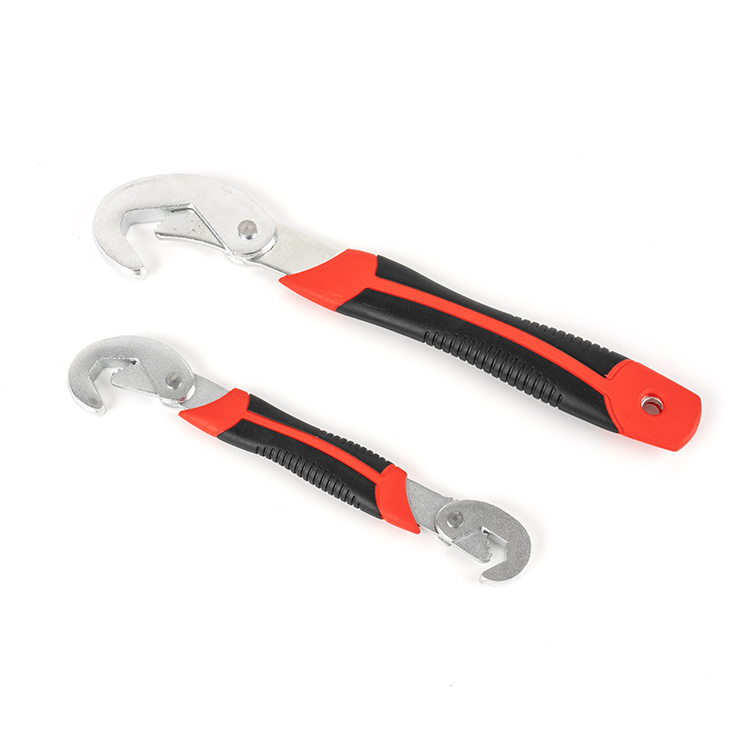Understanding the Importance of a Spanner Wrench in Your Tool Kit
2025-03-22
When it comes to mechanical work, having the right tools can make all the difference between a smooth job and a frustrating one. Among the essential tools that every mechanic, technician, or DIY enthusiast should have in their collection is the spanner wrench. This simple yet effective tool plays a significant role in various applications, particularly when it comes to tightening or loosening bolts, nuts, or other fasteners. In this blog, we'll dive into the details of what a spanner wrench is, its uses, and why it's an indispensable tool for any toolkit.
What is a Spanner Wrench?
A spanner wrench is a type of hand tool designed to tighten or loosen fasteners, especially nuts, bolts, or other mechanical parts. Unlike a traditional wrench, which usually grips the sides of a fastener, a spanner wrench is typically used to engage specific features such as holes, slots, or notches in the fastener. This makes it ideal for use in applications where conventional wrenches may not fit or be as effective.
Spanner wrenches come in a variety of shapes and sizes, each designed to work with specific types of fasteners. The most common types of spanner wrenches are hook-type, pin-type, and adjustable spanner wrenches.
Types of Spanner Wrenches
1. Hook-Type Spanner Wrench
The hook-type spanner wrench is designed with a hook that fits into the notches or holes of a fastener. This type is commonly used for adjusting the tension on nuts or bolts that have external grooves or notches. It provides a firm grip, allowing for precise adjustments without slipping.
2. Pin-Type Spanner Wrench
A pin-type spanner wrench features two pins that fit into holes on a fastener. This design is often used in applications where a more secure grip is needed, such as in tightening or loosening lock nuts or large industrial bolts. Pin-type spanners are commonly used in automotive and machinery repairs.
3. Adjustable Spanner Wrench
An adjustable spanner wrench is similar to a traditional adjustable wrench but designed specifically for use with fasteners that require a precise fit. This tool features a movable jaw that can be adjusted to different sizes, making it versatile for use in various applications.
4. Strap-Type Spanner Wrench
The strap-type spanner wrench is designed with a flexible strap that wraps around the fastener. This type is ideal for use on large, round, or delicate fasteners, such as pipes or filters, where a more gentle touch is required. The strap provides a firm grip without damaging the surface of the fastener.
Why is a Spanner Wrench Important?
1. Precise and Safe Adjustments
One of the key advantages of using a spanner wrench is its ability to make precise adjustments to fasteners. Whether you're tightening a bolt or loosening a nut, the spanner wrench allows for greater control, reducing the risk of damaging the fastener or surrounding components.
2. Versatility
Spanner wrenches are incredibly versatile and can be used across a wide range of industries, including automotive, plumbing, construction, and machinery repair. Their ability to handle different types of fasteners makes them an essential tool in both professional and DIY settings.
3. Durability and Strength
Constructed from strong, high-quality materials like steel or chrome-plated metal, spanner wrenches are built to withstand heavy-duty use. Whether you're working on a car engine, assembling furniture, or fixing machinery, the spanner wrench's durability ensures it will last through countless tasks.
4. Prevents Damage to Fasteners
Using the correct tool for the job is crucial to avoid damaging fasteners, especially in sensitive applications. The spanner wrench’s design is specifically made to fit the fastener’s unique features, minimizing the risk of slipping or stripping threads. This is particularly important in high-torque applications where damage can result in costly repairs.
5. Compact and Easy to Use
Unlike larger wrenches or tools, spanner wrenches are compact and easy to maneuver, making them suitable for tight spaces. Whether you're working on an engine bay or under a sink, a spanner wrench provides the flexibility to get into areas where other tools may not fit.
How to Choose the Right Spanner Wrench
When selecting a spanner wrench, there are a few factors to consider:
1. Fastener Type
The first consideration when choosing a spanner wrench is the type of fastener you will be working with. Depending on whether the fastener has slots, holes, or grooves, you will need to select the corresponding type of spanner wrench (e.g., hook-type, pin-type, or strap-type).
2. Size and Adjustment Features
Make sure to choose a spanner wrench that fits the specific size of the fastener you are working on. Adjustable spanner wrenches are a good choice for various sizes, but for highly specialized jobs, a specific size may be required.
3. Material and Build Quality
Look for a spanner wrench made from high-quality, durable materials. Steel, chrome, and other corrosion-resistant materials will ensure the tool withstands heavy use and exposure to harsh environments.
4. Comfort and Grip
A comfortable handle with a secure grip will make using the spanner wrench more efficient and reduce the risk of slippage. Look for wrenches with ergonomic handles or rubberized grips, especially if you’ll be using the tool for extended periods.
Conclusion
A spanner wrench is a must-have tool for anyone working with mechanical systems or dealing with fasteners that require a precise, secure fit. Whether you're a professional mechanic, a DIY enthusiast, or just looking to add a reliable tool to your toolkit, investing in a spanner wrench will make your work more efficient and less prone to errors. Its versatility, durability, and ability to prevent damage to fasteners make it indispensable for any task that involves nuts, bolts, or other specialized fasteners. With the right spanner wrench in hand, you can tackle a wide range of mechanical tasks with ease and confidence.



